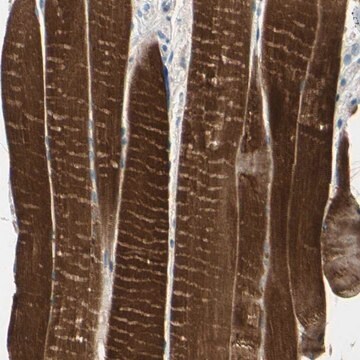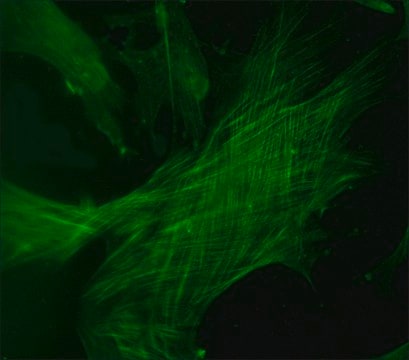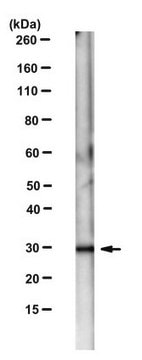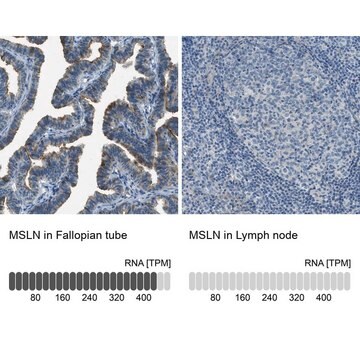MABT1335
Anti-Tropomyosin 3 Antibody, clone 2G10.2
Sinónimos:
Gamma-tropomyosin, Tropomyosin-3, Tropomyosin-5, TPM3, Tm3
About This Item
Productos recomendados
origen biológico
mouse
forma del anticuerpo
purified antibody
tipo de anticuerpo
primary antibodies
clon
2G10.2, monoclonal
mol peso
~30 kDa (Uncharacterized bands may be observed in some lysates.)
purificado por
using protein G
reactividad de especies
human, mouse, rat
técnicas
immunofluorescence: suitable
western blot: suitable
isotipo
IgG2bκ
Nº de acceso NCBI
Nº de acceso UniProt
Información sobre el gen
mouse ... TPM3(117557)
Descripción general
Especificidad
Inmunógeno
Aplicación
Immunofluorescence Analysis: A representative lot detected Tropomyosin 3 in Immunofluorescence applications (Schevzov, G., et. al. (2011). Bioarchitecture. 1(4):135-164).
Western Blotting Analysis: A representative lot detected Tropomyosin 3 in Western Blotting applications (Schevzov, G., et. al. (2011). Bioarchitecture. 1(4):135-164).
Calidad
Forma física
Almacenamiento y estabilidad
Otras notas
Cláusula de descargo de responsabilidad
¿No encuentra el producto adecuado?
Pruebe nuestro Herramienta de selección de productos.
Certificados de análisis (COA)
Busque Certificados de análisis (COA) introduciendo el número de lote del producto. Los números de lote se encuentran en la etiqueta del producto después de las palabras «Lot» o «Batch»
¿Ya tiene este producto?
Encuentre la documentación para los productos que ha comprado recientemente en la Biblioteca de documentos.
Nuestro equipo de científicos tiene experiencia en todas las áreas de investigación: Ciencias de la vida, Ciencia de los materiales, Síntesis química, Cromatografía, Analítica y muchas otras.
Póngase en contacto con el Servicio técnico








